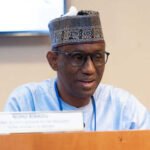Many African countries have yet to ratify the African Disability Protocol (ADP), which aims to protect the rights of people living with disabilities (PWDs).
Development Diaries reports that only 12 member states of the African Union (AU) have ratified the protocol, which is the first human rights treaty that addresses the unique discrimination faced by IDS in Africa.
The United Nations has estimated that over 80 million PWDs are Africans, including individuals with mental health issues, birth deformities, and other physical impairments.
The AU adopted the ADP in 2018, but at least 15 member states still need to ratify it before it can be implemented throughout the continent.
To date, just 12 countries have ratified the ADP – Angola, Burundi, Cameroon, Kenya, Mali, Mozambique, Namibia, Niger, Rwanda, Sahrawi Arab Democratic Republic, South Africa, and Uganda.
Meanwhile, Burkina Faso, Central African Republic, Gabon, Malawi, Nigeria, Senegal, and Togo have signed but not ratified the protocol.
For example, Malawi’s 2018 Population and Housing Census showed that the country had 1,734,250 PWDs aged five years and older, representing about 11.6 percent of its total population, while figures from the World Health Organisation (WHO) and the United Nations Population Fund (UNFPA) indicate that Nigeria is home to an estimated 32 million PWDs.
People with albinism are vulnerable to being kidnapped, harmed, or murdered in various African countries because their body parts are thought to have magical qualities.
Also, there is a common belief in some countries that being disabled is a curse or a form of divine retribution. For example, albinism is a prevalent condition in southern Africa, affecting approximately one in 4,000 people, yet it is still poorly understood and shrouded in myth and superstition.
Development Diaries calls on the African countries yet to ratify the ADP to speedily do so to protect the rights of PWDs.
Photo source: DFID – UK Department for International Development





